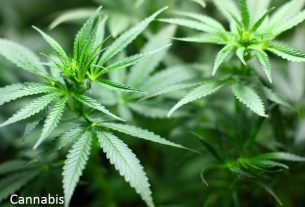By Kayode Oseni
Ensuring safety and efficacy in herbal medicine, especially with knowledge passed down orally, was a multi-faceted process for the herbalist and his ancestors. Observation, ancestral guidance, and practical experience were key.
1. Deep Observation and Animal Instinct: The herbalist closely observed how animals interacted with plants. If an animal instinctively sought out a particular plant when injured or avoided another, it provided clues about the plant’s properties – whether healing or harmful. This was direct, practical research in the field.
2. Dosage and Preparation: The herbalist learned through experience the correct dosage and preparation methods for each herb. This involved trial and error, starting with small amounts and carefully monitoring the effects. Knowledge of potent herbs and their potential toxicity was crucial. Preparation methods like drying, boiling, or tincturing could alter the potency and safety of the herb.
3. Ancestral Guidance: The herbalist relied on the knowledge passed down through generations, both in waking life and through dreams. Ancestral spirits, like that of Pa Taiwo, provided guidance, helping to refine their understanding of plant properties and safe usage. This wasn’t just blind faith; it was a validation and refinement of existing knowledge through a spiritual connection.
4. Knowledge of Plant Identification: Accurate plant identification was paramount. Misidentifying a plant could lead to using the wrong herb, with potentially dangerous consequences. The herbalist developed an intimate knowledge of the local flora, learning to distinguish between similar-looking plants and understanding the subtle differences that indicated their properties.
5. Understanding Individual Constitutions: The herbalist recognized that individuals react differently to herbs. They took into account a person’s age, health condition, and overall constitution when prescribing herbal remedies. What might be safe and effective for one person could be harmful to another.
6. Constant Refinement: The herbalist’s knowledge was never static. They continually refined their understanding of herbs through ongoing observation, experience, and feedback from patients. If a remedy proved ineffective or caused adverse effects, they adjusted the dosage, preparation method, or herb selection.
7. Spiritual Connection: Underlying all these practices was a deep respect for nature and a belief in the interconnectedness of all things. The herbalist approached plants not just as medicinal substances but as living entities with their own energies and unique vibrations. This spiritual connection fostered a sense of responsibility and care in their practice, helping them to use herbs safely and effectively.
- Kayode Oseni is a professor of Natural Medicine, a physician of more than 30 years practice experience. He is a lecturer on Herbal Medicine, Energy Medicine, and Naturopathic Medicine in Universities and Colleges of Natural Health across Nigeria and beyond. He is currently the Dean of School Natural Medicine, Cyrillic College of Homeopathy and Holistic Health Sciences. Ijebu Ode, Ogun State. He is the CEO/ Consultant Naturopath at Alayo Health & Wellness Center, Abeokuta, Ogun State. He can be reached through 08034170747.




